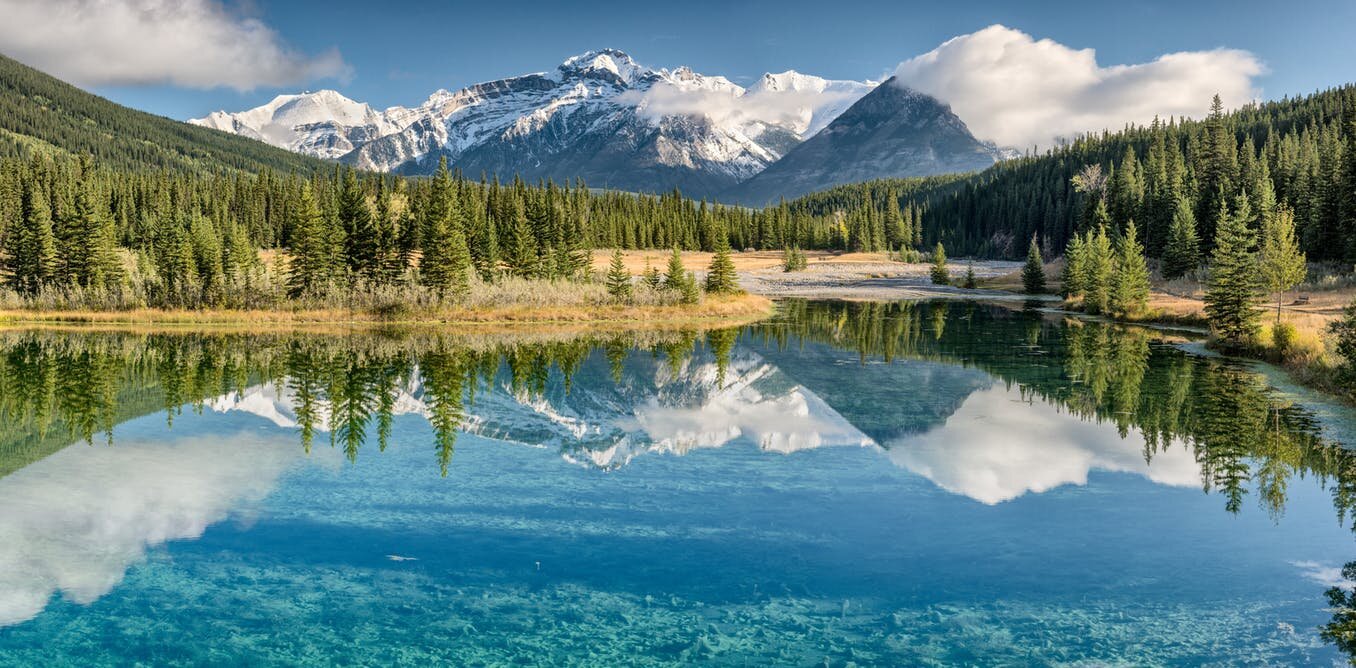
Freshwater is a precious resource that sustains life on our planet. It encompasses rivers, lakes, streams, and underground aquifers, playing a vital role in supporting diverse ecosystems and human activities. Understanding the significance of freshwater is crucial for appreciating its value and implementing sustainable practices to preserve it. In this article, we will delve into 10 fascinating facts about freshwater, shedding light on its importance, distribution, and the challenges it faces. From the mesmerizing biodiversity it harbors to the intricate hydrological cycle that governs its movement, freshwater is a dynamic and essential component of our environment. Join us as we explore the wonders of freshwater and gain a deeper appreciation for this invaluable resource.
Key Takeaways:
- Freshwater is vital for life and needs protection. It’s only 2.5% of Earth’s water, so we must conserve and manage it wisely to meet everyone’s needs and keep nature in balance.
- Collaboration is key to solving freshwater challenges. We must work together to manage water wisely, conserve it, and address issues like pollution and scarcity for a sustainable future.
Freshwater is essential for all forms of life.
Freshwater is a vital resource for all living organisms, playing a crucial role in sustaining ecosystems and supporting human civilization. It is essential for drinking, agriculture, sanitation, and various industrial processes. The availability of freshwater significantly impacts the well-being of both terrestrial and aquatic ecosystems, making it a precious and indispensable resource.
Freshwater accounts for only a small fraction of the Earth's water.
Despite covering about 70% of the Earth's surface, water bodies such as rivers, lakes, and groundwater constitute only about 2.5% of the planet's water. This limited availability underscores the importance of conserving and managing freshwater resources effectively to meet the diverse needs of human societies and maintain ecological balance.
Freshwater ecosystems are incredibly diverse.
From serene lakes to meandering rivers and vibrant wetlands, freshwater ecosystems support a remarkable array of plant and animal species. These habitats are home to diverse fish, amphibians, reptiles, birds, and mammals, making them hotspots of biodiversity. The intricate interplay of species within freshwater ecosystems contributes to the overall health and resilience of the environment.
The water cycle sustains freshwater availability.
The continuous movement of water through the water cycle ensures the replenishment of freshwater sources. Evaporation, condensation, precipitation, and runoff collectively maintain the availability of freshwater on Earth. Understanding the dynamics of the water cycle is crucial for managing and preserving freshwater resources sustainably.
Pollution poses a significant threat to freshwater quality.
Human activities, including industrial discharge, agricultural runoff, and improper waste disposal, contribute to freshwater pollution. Contaminants such as chemicals, nutrients, and microplastics degrade water quality, endangering aquatic life and compromising the suitability of freshwater for consumption and recreational use. Addressing pollution is essential for safeguarding the integrity of freshwater ecosystems.
Freshwater scarcity is a global concern.
Many regions around the world face freshwater scarcity, leading to water stress and posing challenges for communities, agriculture, and industries. Climate change, population growth, and unsustainable water use exacerbate this issue, highlighting the need for efficient water management strategies and conservation efforts to ensure equitable access to freshwater resources.
Wetlands play a critical role in freshwater conservation.
Wetlands, including marshes, swamps, and bogs, are vital components of freshwater ecosystems. They serve as natural filters, purifying water and providing habitats for diverse flora and fauna. Additionally, wetlands mitigate flooding, recharge groundwater, and contribute to the overall health of freshwater systems, underscoring their significance in conservation and sustainable water management.
Freshwater supports essential economic activities.
The availability of freshwater is integral to various economic sectors, including agriculture, energy production, and manufacturing. Irrigation for crop cultivation, hydropower generation, and industrial processes all rely on freshwater resources. Balancing the needs of these sectors while ensuring the long-term sustainability of freshwater sources is a complex yet critical endeavor.
Conservation efforts are crucial for freshwater sustainability.
Preserving and restoring freshwater ecosystems is essential for maintaining biodiversity, supporting livelihoods, and securing water supplies for future generations. Conservation initiatives encompass habitat protection, sustainable water use practices, and the implementation of policies that promote responsible stewardship of freshwater resources.
Collaboration is key to addressing freshwater challenges.
Given the interconnected nature of freshwater systems and the diverse demands placed on them, addressing the challenges related to freshwater requires collaborative efforts. Stakeholders, including governments, communities, and organizations, must work together to develop and implement effective water management strategies, promote water conservation, and address issues such as pollution and water scarcity.
Freshwater, a precious resource that sustains life and underpins various aspects of human society, demands careful stewardship and concerted action to ensure its availability and quality for present and future generations. The 10 Facts On Freshwater underscore the significance of freshwater ecosystems and the need for proactive measures to address the challenges they face.
Conclusion
Freshwater is a precious resource that sustains life on our planet. By understanding the significance of freshwater ecosystems and the challenges they face, we can work towards preserving and conserving these vital environments. From the intricate web of life within freshwater habitats to the essential role of freshwater in human societies, it's clear that we must prioritize the protection of these ecosystems. By embracing sustainable practices and promoting awareness, we can ensure the availability of clean and abundant freshwater for generations to come.
FAQs
What are the main threats to freshwater ecosystems?
Freshwater ecosystems face various threats, including pollution from agricultural runoff and industrial waste, habitat destruction due to urbanization, over-extraction of water for human use, and the impacts of climate change, such as altered precipitation patterns and rising temperatures.
How can individuals contribute to the conservation of freshwater resources?
Individuals can contribute to freshwater conservation by reducing water consumption, properly disposing of household chemicals to prevent water pollution, supporting local conservation efforts, and advocating for sustainable water management policies at the community and governmental levels.
Freshwater's importance can't be overstated, but much remains to be learned about these vital ecosystems. Curious minds might wonder about the inner workings of freshwater habitats, the process of turning saltwater into drinkable water, or the unique characteristics of estuaries where rivers meet the sea. Exploring any of these topics promises a fascinating journey into the world of water, its many forms, and its critical role in sustaining life on Earth.
Was this page helpful?
Our commitment to delivering trustworthy and engaging content is at the heart of what we do. Each fact on our site is contributed by real users like you, bringing a wealth of diverse insights and information. To ensure the highest standards of accuracy and reliability, our dedicated editors meticulously review each submission. This process guarantees that the facts we share are not only fascinating but also credible. Trust in our commitment to quality and authenticity as you explore and learn with us.


